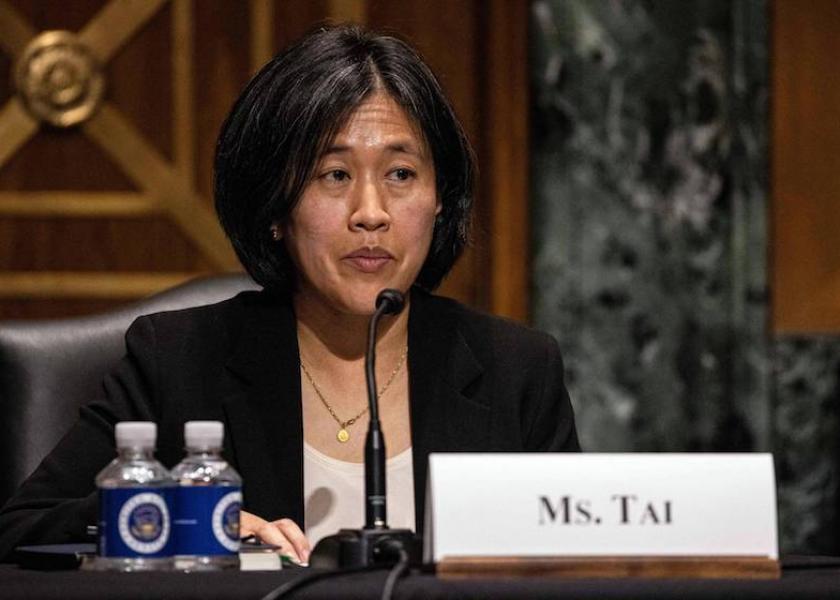USTR Tai Continues to Push Trade Policy Focused on Non-Tariff Barriers

U.S. Trade Representative Katherine Tai tonight will deliver remarks at American University in Washington, with her message remaining consistent as she tries to tout the Biden administration’s trade policy to engage countries on non-tariff trade barriers versus pursuing traditional trade agreements that address tariffs faced by U.S. goods in foreign markets.
Tai also will keep stressing the administration is working with its allies to take on unfair competition from China.
USTR's Trade Tools
The tools include the Section 301 tariffs deployed by the Trump administration, and Tai said, “For a long time we just figured the market would take care of everything, and if it’s not on a level playing field, we’ve seen a lot of erosion. We’ve got to take new, more active, bolder measures to invest in ourselves.”
According to excerpts of her remarks, Tai will say the U.S. is seeking to write “a new story on trade, one that makes us more resilient, our economy more sustainable, and are results more inclusive.” The Indo-Pacific Economic Framework (IPEF) is among the efforts Tai has touted to achieve those goals.
Related story: Which Country Imports the Most U.S. Wheat?
While Tai has faced strong criticism about a lack of new trade agreements being pursued, she claimed this week that the U.S. is “nearing a consensus on the need to do things differently.”
Trade Bottom Line
The speech comes after Congressional hearings last month where many Republican lawmakers and a few Democrats faulted the administration for not negotiating new free-trade agreements or having a sufficiently ambitious trade agenda. Tai said then that tariff-lowering agreements have in some ways made the American economy vulnerable, and the Biden administration wants to address the problem with a fresh approach.







